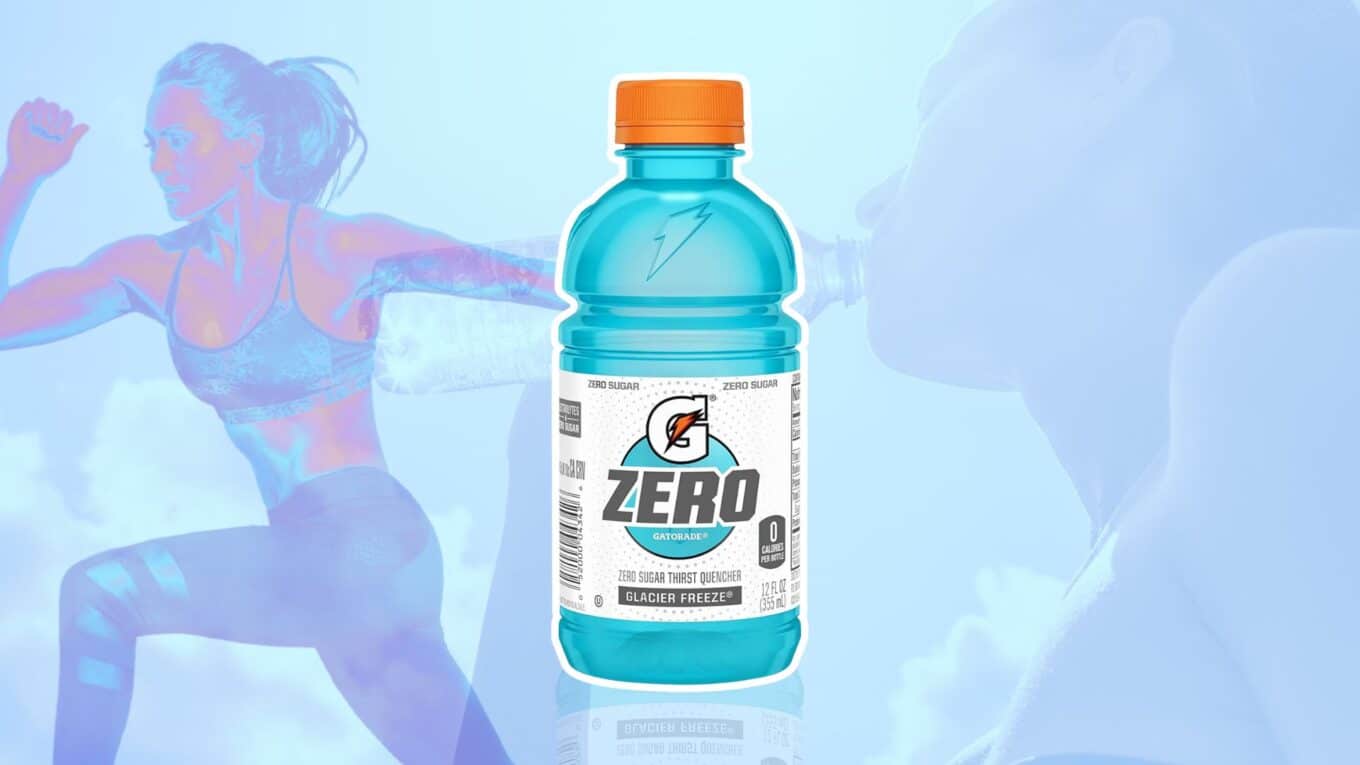In today’s health-conscious world, many people turn to low-calorie, electrolyte-enhanced sports drinks like Gatorade Zero to stay hydrated.
But is Gatorade Zero really good for you? This article delves into the composition of Gatorade Zero, examining its artificial sweeteners, electrolytes, and other ingredients.
It also explores the potential health concerns of consuming these artificial additives regularly.
Additionally, the article considers the environmental impact of single-use plastic bottles and the cost implications of choosing Gatorade Zero over other hydration options.
Finally, it presents natural alternatives that offer hydration without the drawbacks of artificial ingredients.
By the end of this review, readers will understand whether Gatorade Zero is a healthy choice for their hydration needs and will be equipped to make informed decisions about their beverage choices.
Composition of Gatorade Zero
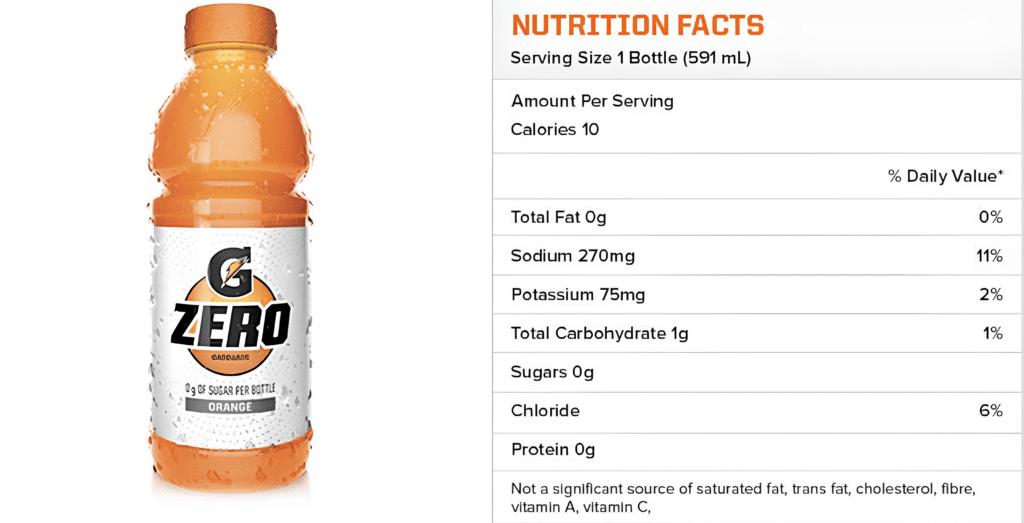
Unlike regular Gatorade, which contains sugars like sucrose or glucose, Gatorade Zero opts for a zero-calorie formulation by replacing sugars with artificial sweeteners.
This allows it to provide hydration without adding unnecessary calories, making it attractive for those watching their sugar and calorie intake.
Artificial Sweeteners & Electrolytes
1. Sucralose and Acesulfame Potassium
- Gatorade Zero relies on sucralose and acesulfame potassium – two common artificial sweeteners to achieve that familiar sweet taste without sugar calories.
- Sucralose is derived from sucrose (table sugar) but has been chemically modified to be much sweeter with zero calories.
- Acesulfame potassium is another calorie-free sweetener that is around 200 times sweeter than sugar.
- This duo of sweeteners is found in many “diet,” “zero,” or “sugar-free” beverages and foods.
2. Monopotassium Phosphate
- As a sports drink designed to replenish electrolytes, Gatorade Zero aims to refill essential electrolytes lost through sweat during exercise.
- Monopotassium phosphate provides potassium, an important electrolyte that aids in muscle function.
- It also helps balance acidity levels and is a preservative to extend the drink’s shelf life.
3. Glycerol Ester of Rosin, Artificial Colors, and Natural Flavors
- The glycerol ester of rosin is a stabilizer that helps maintain Gatorade Zero’s texture and consistency.
- Finally, unspecified “natural flavors” are added to give each variety its distinct taste profile.
- While regulatory bodies generally recognize these additives as safe for use in foods and beverages, their long-term impacts are still being studied.
Gatorade Nutrition and Health Concerns
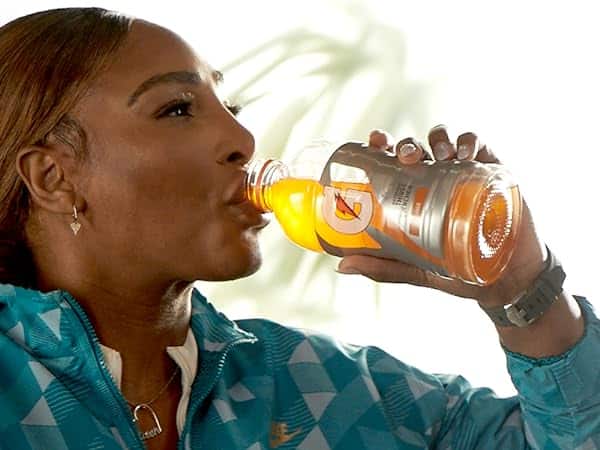
Artificial ingredients like sweeteners, colorants, and preservatives are synthetically produced compounds widely used in the food and beverage industry.
Beverages often contain non-nutritive sweeteners such as sucralose and acesulfame potassium to provide sweetness without adding calories.
Artificial colors such as Blue 1 and Red 40 enhance visual appeal, while preservatives extend shelf life. These synthetic food dyes are commonly used in various food and beverage products to enhance visual appeal.
Manufacturers favor these ingredients as they are low-cost, consistent, and stable during processing.
1. Specific Concerns Related to Artificial Ingredients
A study published in CBS News on August 3, 2023, suggested that the artificial sweeteners added to these drinks lead to increased body fat.
The FDA has set acceptable daily intake levels, but concerns remain about their long-term impacts.
Artificial colors have been linked to hyperactivity in children, allergic reactions, and potential carcinogenic effects, leading some countries to ban or restrict their use.
Preservatives like sodium benzoate have also faced investigation for their possible role in conditions like asthma and ADHD.
2. Long-term Health Effects
Continuous exposure to multiple artificial ingredients may have a cumulative effect on health.
Some researchers suggest this could contribute to chronic issues like metabolic syndrome, obesity, gastrointestinal problems, and even neurodegenerative diseases, though more studies are needed.
An article related to the health effects published in Future Science Journal on June 23, 2023, suggested that Artificial sweeteners are substances added to food to make it taste sweet, like sugar.
They imitate sugar’s flavor and effects on taste because taste, smell, texture, and appearance influence our perception of food.
These sweeteners are low-calorie alternatives used as dietary options by people with obesity or diabetes.
Vulnerable groups like children, pregnant women, and those with pre-existing conditions like diabetes or cardiovascular diseases may be more affected by the adverse effects of these ingredients.
3. Impact of Continuous Consumption on Overall Health
Regular artificially sweetened beverages can shape taste preferences, increase cravings for sweet foods, and potentially lead to overconsumption of calories from other sources.
There are also concerns that the “diet” or “zero” labeling may create a misperception of being a healthier choice, leading to dependency.
Physically, long-term intake of multiple artificial additives has been linked to insulin resistance, weight gain, disruptions to gut microbiota, and increased risk of chronic diseases like type 2 diabetes and cardiovascular issues.
However, more research is still needed to fully understand the health implications of sports drinks like Gatorade Zero.
While regulatory bodies count each individual ingredient safe at approved levels, the potential synergistic effects and health impacts of chronic, combined exposure to multiple artificial ingredients remain a topic of ongoing scientific debate and investigation.
Environmental and Economic Considerations
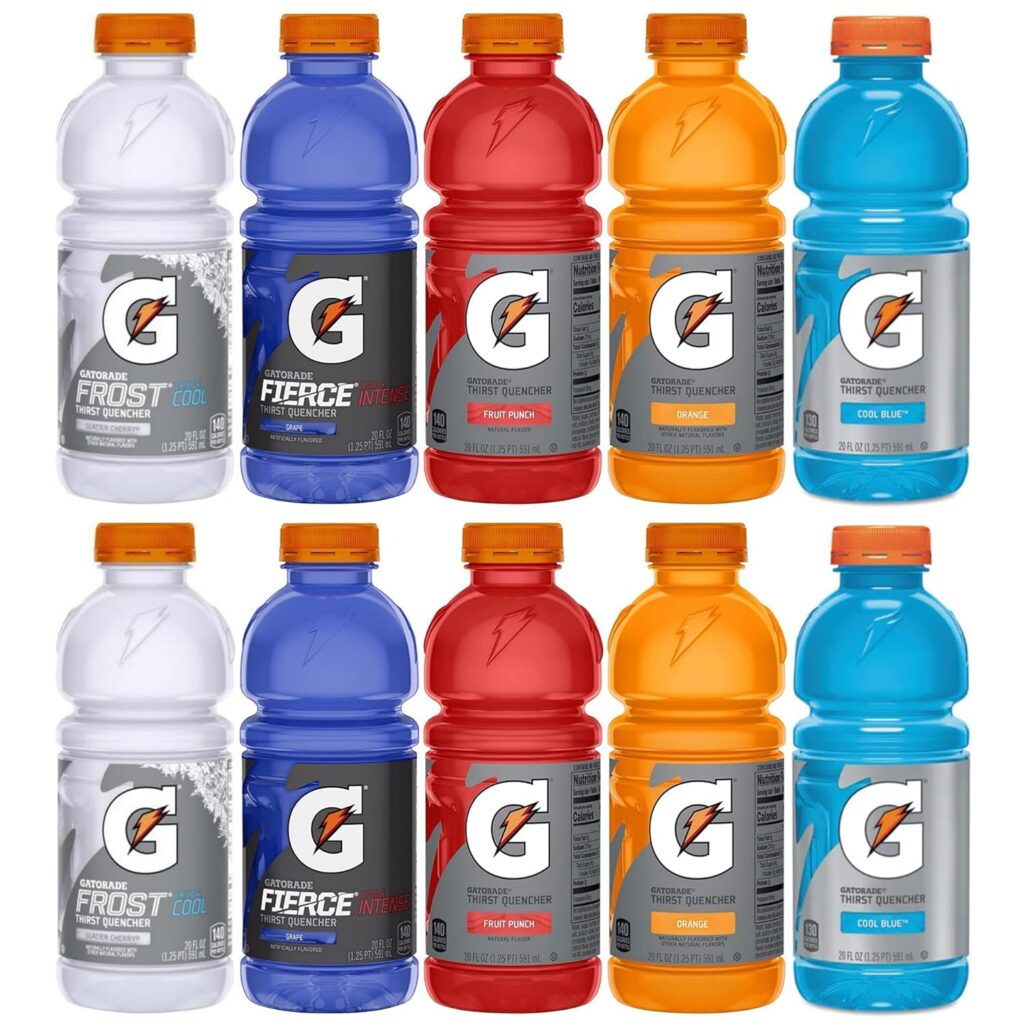
When choosing between Gatorade Zero and Regular Gatorade, it’s also important to consider the environment and your budget. Regular Gatorade bottles are made from plastic, which can harm the environment if not recycled properly.
Gatorade Zero bottles are also made from plastic, but the drink has fewer ingredients. Due to the special ingredients used to replace sugar, Gatorade Zero is often slightly more expensive than Regular Gatorade.
1. Environmental Consequences of Using PET Plastic
Like most bottled beverages, Gatorade Zero is primarily packaged in plastic bottles of single-use PET (polyethylene terephthalate).
These lightweight and shatter-resistant bottles have become universal in the beverage industry.
- The production of PET plastic is resource-intensive, requiring large amounts of fossil fuels and water. It also generates significant greenhouse gas emissions that contribute to climate change.
- While PET plastic is technically recyclable, recycling rates remain low globally due to contamination, lack of infrastructure, and low economic motive.
Long-term Environmental Implications
- Improperly disposed of PET bottles can persist in the environment for hundreds of years, gradually breaking down into microplastics that pollute oceans, soil, and waterways.
- These particles can harm marine life and enter the food chain, posing potential risks to human health.
- While some companies are exploring more sustainable packaging alternatives, such as plant-based plastics or aluminum cans, widespread adoption remains challenging.
2. Cost Analysis of Regular Consumption
A single 20 oz bottle of Gatorade Zero typically costs around $1.50 to $2.00, while a gallon of tap water is free.
Purchasing Gatorade Zero regularly, even just a few times a week, can quickly add up to high costs over a month or year compared to drinking water.
Gatorade Zero has marketed itself as a low-calorie, electrolyte-enhanced sports drink and thirst quencher, appealing to athletes or those in intense physical activity.
The added electrolytes and flavor may encourage increased fluid intake compared to plain water for some consumers.
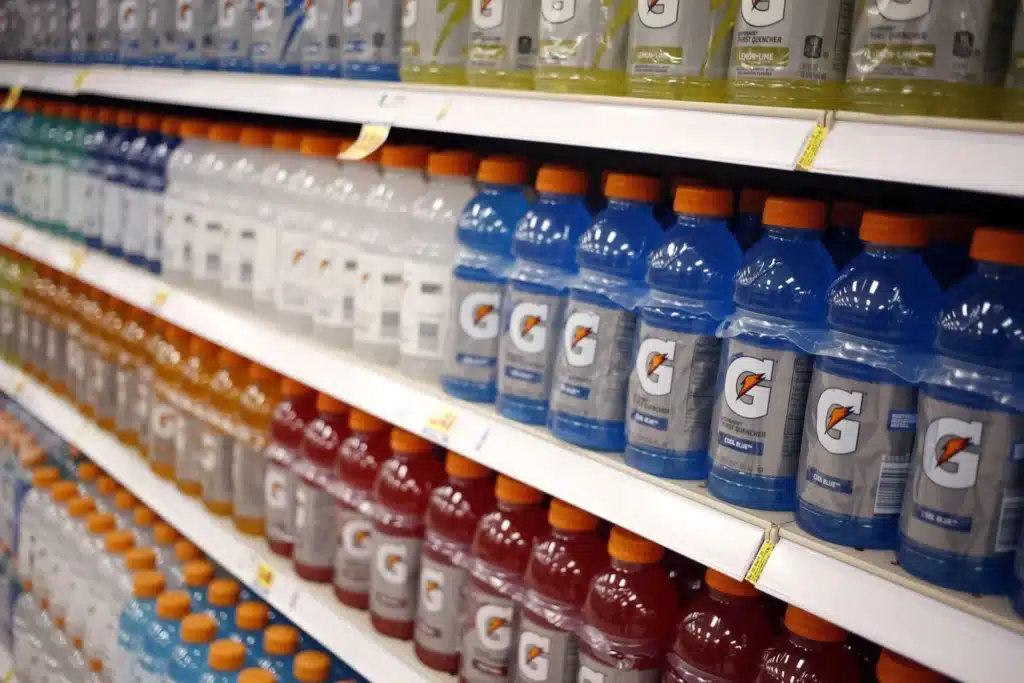
Cost-Benefit Comparison
While Gatorade Zero may provide some hydration benefits over water for athletes, scientific evidence is limited on whether these benefits justify the added cost for most casual consumers.
Homemade electrolyte drinks or cheaper sports drink alternatives could provide similar hydration benefits at a fraction of the cost.
Advice for Economical Consumption:
- Buying in bulk or seeking discounts can reduce the per-serving cost for those who enjoy Gatorade Zero.
- Alternating between Gatorade Zero and water or homemade electrolyte drinks can help balance the costs.
- Simple recipes using salt, sugar, and lemon juice can create an affordable, homemade electrolyte drink for casual hydration needs.
Alternatives and Recommendations
While Gatorade Zero aims to replenish hydration and electrolytes, many consumers seek more natural options free from artificial additives.
These alternatives not only hydrate but can also offer additional health benefits.
Examples of Natural Options
1. Coconut Water
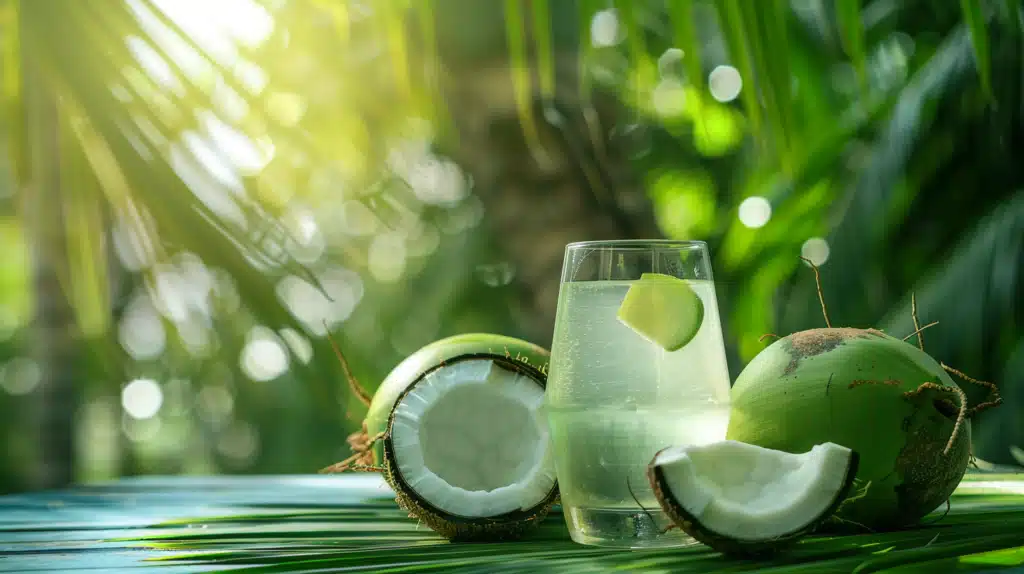
- Coconut water is packed with natural electrolytes like potassium, sodium, and magnesium, making it a great option for hydration and post-exercise electrolyte replacement.
- Studies have shown that coconut water is as effective as sports drinks in rehydrating the body and replenishing electrolyte levels.
2. Herbal Infusions

- Herbal teas like chamomile, hibiscus, or peppermint can be refreshing sources of hydration with added benefits.
- Chamomile has calming properties, hibiscus is rich in antioxidants, and peppermint can aid digestion – all while keeping you hydrated without sugars or artificial additives.
3. Other Options

Simple beverages like lemon water, cucumber water, or fresh watermelon juice are hydrating and provide essential vitamins, minerals, and beneficial plant compounds.
Gatorade Powder and Nutrition Facts Review
For those who prefer more control over their hydration, Gatorade powder offers an alternative to bottled drinks. The powder form allows users to adjust concentration based on their thirst and exercise needs. When examining the nutrition facts, Gatorade does provide essential electrolytes, though the powder version may contain different ratios compared to the ready-to-drink options. Many athletes use electrolyte powder or electrolyte supplements to customize their hydration strategy during intense exercise. Electrolytes from powder can be more cost-effective for regular users who need consistent electrolyte replacement.
Final Thoughts
While Gatorade Zero may seem attractive for those seeking a low-calorie, electrolyte-replenishing sports drink, it is essential to consider the potential health risks associated with its artificial ingredients.
The long-term effects of consuming artificial sweeteners, colors, and preservatives regularly are still being studied, and concerns have been raised about their impact on gut health, metabolism, and overall well-being.
We should not overlook the environmental consequences of single-use plastic bottles and the cost implications of regularly consuming Gatorade Zero.
For most people, natural, additive-free alternatives like water, coconut water, or herbal infusions can provide adequate hydration without the drawbacks of artificial ingredients.
While Gatorade Zero may be suitable for intense athletes’ diets, it is crucial for the average person to weigh the potential risks and benefits before making it a regular part of their hydration routine.

